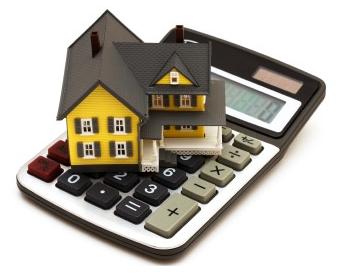Every investor is different.
Every investor has different risk tolerances, goals, objectives, and sensitivities.
But at some point, there has to be a minimum standard. Doesn’t there?
My recent experience with a west-end property has shown me that some investors don’t actually care about their return…

I believe I’ve talked about my “California Guy” on this blog before.
Maybe I said his name was “Spencer” or maybe it was “Sam.” I can’t remember.
I might have said he was from Silicon Valley, or maybe I actually said he was from Los Angeles.
Either way, I’ve been working with…..Smith for about eight months trying to find him the perfect Toronto investment property.
We worked out way through the motions and realized that we wanted a four-plex; not a triplex, and not a five-plex.
We knew we wanted to find a property in the Queen West area, and ideally it would be turnkey with very little work to do.
Smith is buying up properties in the down-trodden Los Angeles market where he can experience cap rates of 8-9% after putting in a little elbow-grease and TLC. The only issue, however, is that the mortgage market in Los Angeles is a whole other ballgame.
Smith has put down some 30-40% on these properties.
The mortgage industry has changed ever since the U.S. economy tanked, and you can’t buy with 5% down like you can in Toronto.
Smith wanted to expand his real estate portfolio, and as I’m sure he owns several houses, apartments, the odd gumball factory in Seattle, he was looking to add a fourplex in Toronto so long as it could be cash-flow positive.
The “perfect” property came onto the market not too long ago, and as I’m prohibited from giving out the address for fear of repercussions, let’s just say that it was in a thriving area and the location was A++.
The price was $1,049,000, and at this price, we would be looking at a cap rate of about 6.3%.
This is a lot lower than what Smith had pegged as his “minimum required return” to look at properties, but I was adamant that the location and the property would offset any issues he had with the income.
After seeing the property up close with Smith’s brother-in-law, Ronnie, we determined that the rents could be raised substantially as the current tenants had all been living there for years with 2-3% rental increases each year.
Sure, we would have to play the part of the “big, bad, mean Landlord,” but ultimately Smith could probably pull in $1400 for one unit that was getting $1100, and he could probably get $200 – $300 more for each of the other 2-bedroom units.
The property had a ton of potential, but in the end, Smith called me the day before offers were set to be reviewed, and told me “I’m going to pass.”
Have you ever seen the movie Boiler Room?
It’s one of my favorite movies of all time! When Giovanni Ribisi is on the phone with a potential whale, the whale tells him “I’m passing” and Ribisi replies, “What? You’re passing? You’re passing? John, the only people who make money passing are quarterbacks, and I don’t see a number on your back!”
When Smith told me he was passing, I immediately wanted to know why because I knew that whatever he said would be a lesson in investing.
Smith is such an astute investor that him passing on a property meant that it just wasn’t worth sinking money into.
And since there was so much interest in the property, it meant that all these other investors didn’t have the smarts that Smith had.
Smith crunched the numbers and determined that to carry this property with the downpayment he wanted to put forth (remember – every investor is different) would cost him $2,000 out of his pocket every month.
An “investment property” should be providing a return, no?
An “investment property” should be cash-flow-positive, right?
Smith told me that it no longer made any sense. He figured that the market for investment properties had risen so high that it ignored the fundamental reason for investing in the first place!
Well guess what, folks? The property ended up selling for $1,225,000, listed at $1,049,000.
That shrunk the cap rate down to 5.4% from 6.3%.
I’m told never to use the “b-word” in real estate, but when Smith sent me the following, I thought it could apply to the investment property we had looked at:
Bubbles are formed when excessive speculation enters a market. Instead of viewing the intrinsic value of an asset, speculators in a bubble market instead focus on the resale value of the asset. This is sometimes referred to as the greater fool theory of investing. In a bubble, it doesn’t seem to matter that a price is irrationally high – it only matters that it can be sold for an even more irrational price at a later date. Bubbles often end with steep declines, where most of the speculative gains are quickly wiped out.
Don’t get me wrong – I don’t think our market is in a bubble, nor do I see one on the horizon. As a whole, I think Toronto has a lot of room to grow.
But when it comes to this particular investment property in the west end, I think the “greater fool theory” could apply.
Whoever bought the property for almost $200,000 over the asking price is ignoring that this “investment” isn’t generating any positive cash flow. Unlike a residential property where the user actually resides, this investment property serves only to generate income for the owner. If it’s not doing that at $1,225,000, then why would somebody pay that and not live there?
I trust Smith’s judgment emphatically, and if he tells me that there’s more money in a gumball factory in Topeka, Kansas than there is in this west-end property in Toronto, then I believe it.
After all, I made more money renting out a one-bedroom condo last year than I would make on this west-end property at the recent sale price, and there isn’t supposed to be any money in condos as investment properties.
Is there?































Meh
at 12:09 pm
David..
You print a definition of a bubble, which says that it occurs when people justify current prices by focusing on the potential future price. Then in the next sentence you say we aren’t in the bubble now, because prices are going to continue to grow! The irony! Can you not see that?
Here’s the thing, if prices increase substantially this year, then we are either going into a bubble, or are in one.
If they don’t increase, then it can be argued we aren’t in a bubble.
You can’t say that we aren’t in a bubble AND prices are going to increase, those two don’t go together until employment, wages and cost of living change to make houses more affordable. Show those stats, then you can say house prices will go up in a non-bubble fashion.
Here’s a bubble test that goes with todays story (which on it’s own is a single case proof of bubble buying in toronto).
Tell some your clients that they shouldn’t expect any gains on a condo they buy over the next 5 years, maybe 5%-7% after 5 years (not per year).
If they say thats ok, we need a place to live -> then we’re not in a bubble.
If they say ‘then why would we pay so much for this place’ -> then we’re in a bubble.
Which do you think would happen more often, if you were actually to do this?
Meh
at 12:19 pm
To illustrate my point a little better, had you said this:
“Don’t get me wrong – I don’t think our market is in a bubble, nor do I see one on the horizon. As a whole, I’m seeing wages and employment keep pace with the housing market. I see the market going up X% this year, and I expect the average person will get the same size raise.”
That would have been a non-bubble statement.
David Fleming
at 12:43 pm
@ Meh
Sometimes I just write, let the thoughts flow, and don’t proof-read. Actually, I always do that; it’s my aim. It’s more true that way; like a conversation instead of a thesis.
If I could elaborate, I guess what I’m saying is that I don’t see a bubble on the horizon because I do project more growth in 2010 and 2011 for the market as a whole.
However, if you were to divide the market into different categories (condo, freehold, commercial, retail, downtown, Markham, investment, primary residence, etc), I could certainly pick and choose which I would put my money into, and which are overbought/sold.
As for true “investment properties,” it would seem, based on my most recent experience, that investors are ignoring the fundamentals of investing. They are buying based on projected future appreciation, instead of the potential monthly yield.
The investor who paid $1,225,000 for this property did so because he thinks he can get $2,500,000 in ten years. But he’s going to be paying a few thousand dollars each month just to carry it!
A true “investment property” is supposed to yield positive cash flow! Well, by my definition, it is…
Meh
at 1:22 pm
But you once again don’t give any reasons for those projections…
I’ve been dieing for someone, anyone, to tell me where the money is going to come from that will push prices higher in a sustainable way. Nobody can tell me!
matt
at 4:50 pm
“After all, I made more money renting out a one-bedroom condo last year than I would make on this west-end property at the recent sale price, and there isn’t supposed to be any money in condos as investment properties.”
If you can afford to buy the property 100%, with cash, the monthly rate of return after condo fees is comparable to current bond yields and far better than GIC and money market rates. Now if I could just find that much cash.
LC
at 10:35 pm
It all depends on how a person approaches this market – as a buyer looking for a place to live or as an investor looking for a good ROI. I’m fortunate enough to fit into the latter category, though I’ve already started focusing my energies elsewhere as just like Smith/Spencer/Sam, I can’t make the numbers work with my downpayment to generate a positive cash flow. Does that mean we’re in a bubble? Heck, no! I believe downtown TO is capable of demanding and maintaining $1000/sf in the near future. I just may have to be content with my current unit for a lot longer, that’s all.
PGK
at 3:34 pm
David, do you know what downpayment the winning bidder put down?
Maybe this property doesn’t make sense to a guy who is putting down 30-40%, but it might make sense to a guy or maybe a group of investors who can buy it mortgage free and collect a decent monthly income from it. Especially considering the purchase price level and A++ location which is likely to attract better tenants and likely to hold its value better over long time horizons.
Also, I’ve read theories about international “real-estate investment syndicates” scooping up condo units and other properties in major markets like Toronto. It was mentioned in an article yesterday in the National Post.
Have you seen anything like this in the field? I’m sure they exist, but just wondering about how much of an impact they are in today’s market.